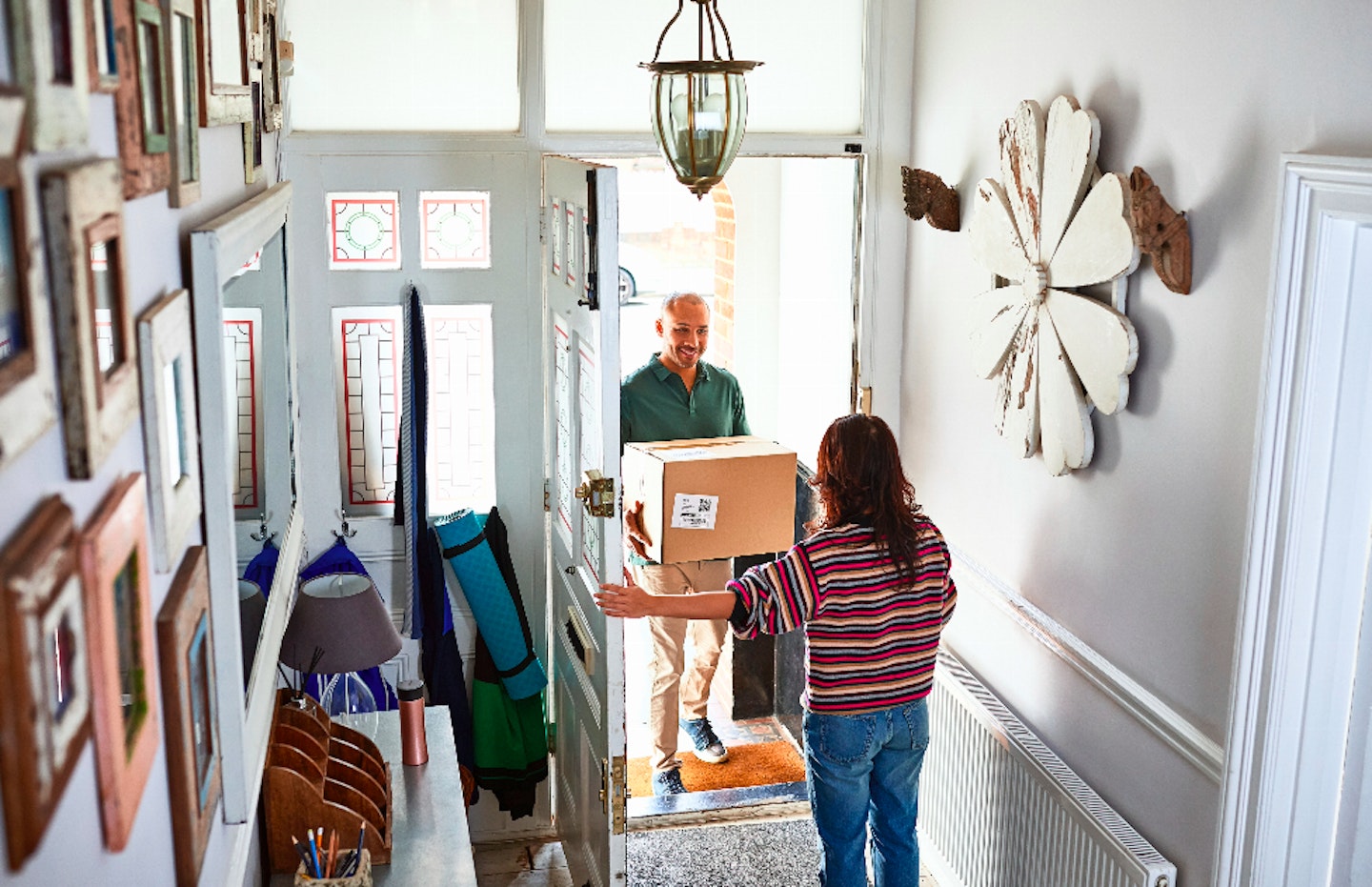Marketing teams are tasked with finding ways to get us to part with our cash – and they work. We asked Rebecca Smith, psychotherapist and founder of peachymindsbox.com, and money expert and mentor Sarah McCalden, to give us some insight on how these tactics work and how to avoid getting sucked in.
THE TRAP: Offers of credit
From store cards to PayPal and Klarna, the opportunity to get credit for things we want to buy is everywhere. “These can persuade us to purchase more than we can afford because our brains are programmed to seek reward and avoid pain,” explains Rebecca. “We receive the reward of being able to buy what we desire while avoiding the pain of paying for it now or not being able to afford it.
AVOID IT!
When we get these offers, we need to remind ourselves that we are simply postponing the pain of paying, not removing it completely. Often asking ourselves, ‘Do
I need this or just want it?’ can help provide more clarity.” “Also ask yourself what type of spender you want to be,” adds Sarah. “Do you want to be an overspender? Always spending more than what you’ve got in the bank, using debt to pay for things? Or do you want to be an empowered spender, creating spending habits that align with the person you want to become?”

The trap: Early access sales
The wording of early-access sales suggest to our brains that if we don’t act fast, we’ll miss out on this brief offer. “Sales are tempting because they feed into our fear of scarcity and missing out. Scarcity is uncertain and our brains crave certainty because being sure of something feels safe,” says Rebecca.
AVOID IT!
“You can avoid being sucked into these sales by asking yourself if you would pay full price for the item or if you only want it because you are afraid of missing out.” Sarah’s tip is to get into the habit of separating want from need. “You have to learn to be discerning about what you really want and need; what’s going to add value to your life,” she says. “Just because there is a sale, doesn’t mean we have to spend our money.”

The trap: Handpicked Offers
In this case, companies use algorithms to tempt us with offers they know we might like, based on our previous spending. “Just-for-you offers make us feel less like a number to these big companies, and more like a valued customer.” But Rebecca says that they’re a trick.
“Handpicked offers boost our self-esteem. We feel as though these items have been chosen by experts so some of the risk of buying is removed. This means we are more likely to buy.”
AVOID IT!
“We need to remind ourselves that we are the person who knows ourselves best and build our confidence and self-esteem so we can filter recommendations and be less vulnerable to using shopping to boost out mood,” says Rebecca. “Again, ask yourself, ‘Do I really need this, or is this just an algorithm noticing my previous purchasing habits?’,” adds Sarah.

The trap: Free delivery with big spends
None of us like paying for delivery, and companies know this. “A large amount of people abandon their online shopping carts when they are faced with shipping costs on top of the cost of their items,” explains Sarah. “Offering free delivery if you spend over a certain amount is just a matter of companies doing the maths game and figuring out ways we spend more.” Rebecca adds, “Free gifts or free delivery can motivate us to buy more because they increase the dopamine levels in our brains. Dopamine is released by our brains when we anticipate something good – such as a purchase. It also causes us to want and seek out more good things.”
AVOID IT!
Time and space are key. “When we get caught up looking for more to purchase, it’s important to break the dopamine cycle by putting our phones face down or closing our browser,” says Rebecca. “Often when we revisit we are less motivated to buy.”

The trap: Last chance to buy!
From concert tickets close to selling-out to lines of stock being discontinued, again, these offers tap into our FOMO. “We are conditioned to avoid loss – when things are scarce, the more we want them. We are afraid of missing a good deal,” explains Sarah. Rebecca agrees, adding, “Last chance to buy emails increase uncertainty, which increases anticipation – which increases dopamine. We crave the certainty of being able to buy what we desire and when uncertainty is increased, we believe the reward will be higher when we receive it.” Clever stuff.
AVOID IT! Take the long view. “If you feel like you are missing out by not purchasing something when stocks are low, consider what you already have, ask yourself if you need this item and how it will improve your life. Also ask yourself how making this purchase will affect your bank account, credit card debt and what long-term impact it will have on your lifestyle,” advises Sarah. Rebecca advises shopping mindfully, “Pause and break the loop. Move away from your screen and remove stored payment options so you have time to consider what you’re buying,” she says.
